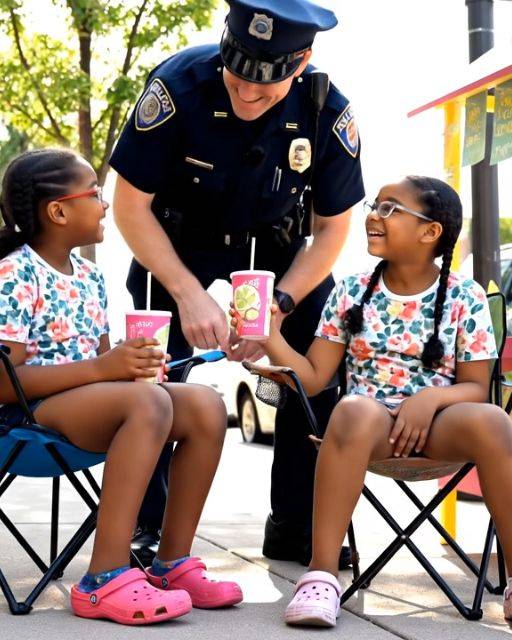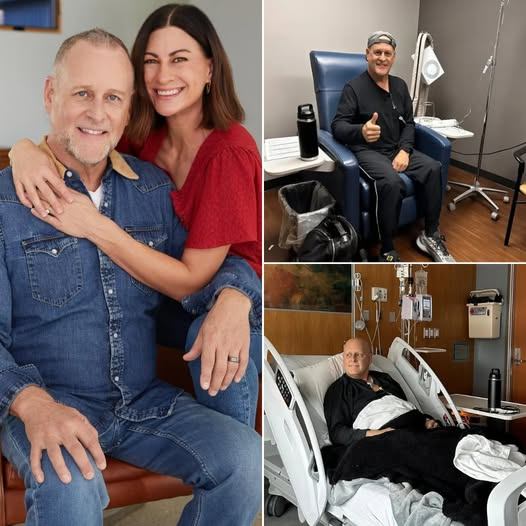
On a sunny afternoon, two young sisters set up a small lemonade stand on the corner with their dad. A folding table, two pitchers, and a handwritten sign that read “LEMONADE 50¢” was all they had. The girls, wearing matching pink Crocs, beamed with excitement as music played softly in the background.
Despite the heat, their joy was contagious.
About an hour into their day, a white SUV pulled up. A woman inside took a photo and mentioned that the sale wasn’t “permitted.” Moments later, a police car arrived.
Their dad quickly explained that the girls were just having fun, not running a real business. But instead of issuing warnings, the officer squatted down and asked the girls if the lemonade was fresh. They nodded, nervous.
He bought two cups, gave them each a fist bump, and calmly crossed the street—to talk to the neighbor who made the call. What he said wasn’t loud, but it was clear: there was no need to involve emergency services over something so small. Kids selling lemonade, he reminded her, is part of growing up.
The next day, everything changed.
Word spread across the neighborhood. People showed up—families, cyclists, neighbors from blocks away. The girls were overwhelmed in the best way. One local mom brought cookies to sell with the lemonade. A canopy was donated so the girls could have shade. Someone even printed custom cups that said “Lily & Ana’s Lemonade.”
By the end of the week, the sisters had earned nearly $400.
But the best part wasn’t the money—it was what happened next.
Their dad, Carlos, had been struggling to find stable work. The lemonade stand helped, but they were still getting by day to day. That changed when a local business owner stopped by, loved the lemonade, and offered Carlos a part-time job. Two weeks later, he was hired full-time.
The girls kept selling on weekends. The community kept showing up.
One day, a little boy came by without any money. Ana gave him a cup “on the house.” He returned the next day with two quarters, proud to pay. His family was going through a tough time, so Carlos quietly started sharing groceries when he could.
Later, a news crew came to feature the story. A nonprofit donated $1,000 to support the girls’ future. A small savings account was opened in their names.
And that neighbor who once complained? Weeks later, someone quietly dropped $5 and a handwritten note in the tip jar that read, “Sorry for the rough start. Good luck to the girls.”
Sometimes, a small act of kindness can ripple through a whole community. These girls didn’t just sell lemonade—they sparked something bigger: hope, connection, and a reminder that small businesses, especially those run with heart, deserve support.
So next time you see kids with a lemonade stand—buy a cup. Maybe two.
You never know what difference it might make.
If this story brought a smile to your face, share it with friends and family. We could all use a little more kindness in our day.



